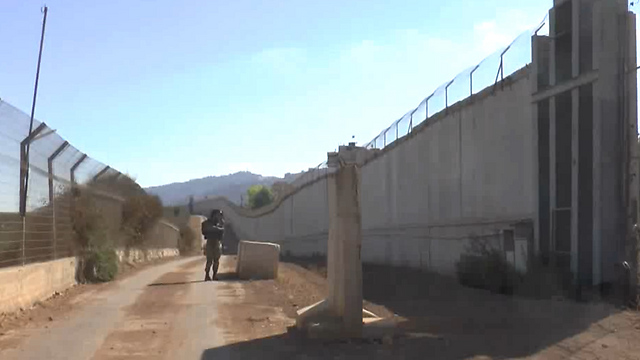Israel speaking Russian to Hezbollahإسرائيل تتكلم بالروسية مع حزب الله
Alex Fishman/Ynetnews/June 29/17
Analysis: Using the Russian model, Israel is sending a clear message to the terror organization that if it fails to back down on its effort to establish strongholds in the Golan Heights, Israel may take advantage of its weakness in southern Lebanon and attack.
When Hezbollah Secretary-General Hassan Nasrallah wakes up in the morning, the last thing on his mind is another fence being built by Israel along its border with Lebanon. As far as he’s concerned, when Israel invests billions in different fortifications on the northern border, it’s another small victory. The war he is waging against Israel is comprehensive: Sometime it’s reflected in missile attacks, but most of the time it’s psychological and economic. His goal is to make Israel waste money and live in fear. That’s how he believes he can break Israeli society.
One thing that does bother Nasrallah when he opens his eyes is where will he get money to keep maintaining the huge political, military and civilian system he has built in Lebanon in a reasonable manner. Over the past two years, Hezbollah has been in a dire financial situation. The Iranian support has been reduced by hundreds of millions of dollars; there is a drop in the extent of taxation and donations; the Americans, the Saudis and others have declared the group a terror organization, and the sanctions are leaving their mark on its day-to-day life. Having no other choice, Hezbollah has sold assets and reduced salaries.
One-third of Hezbollah’s fighting force has been in Syria for four years now. One-third of the fighters have been either killed or wounded, and the burden of payments to their families is huge. Morale is affected too. Militants are reluctant to participate in another round of fighting in Syria after only narrowly escaping the previous time. It’s no wonder that in the past two years Hezbollah has been burying 16 and 17-year-old boys who volunteered to fight among the organization’s ranks in Syria.
So why did someone in the defense establishment decide to make headlines this week by linking the commencement of work on the northern border fence to a summer war against Hezbollah? This is not the finest hour for Hezbollah forces in southern Lebanon. Their ability to wear out and curb an Israeli ground maneuver has been reduced, as a significant part of the best or most professional forces reinforcing the defense lines in southern Lebanon is absent. If anyone in Israel decides there is a need to destroy Hezbollah’s base in southern Lebanon, now is the time.
A Hezbollah-initiated war coming out of Lebanon is out of the question right now, as far as the organization is concerned. Its leaders believe one of the ways to circumvent the “Maginot Line” Israel is building on its northern border is the Golan Heights. There, Israel is already wrestling with Hezbollah and Iran in different ways. This brawl is reflected in the Israeli strikes against the Syrian army in recent days—following the spillover of mortar shells into Israel—as part of the battle over shaping the Golan Height’s future.
It seems ever since the Russian army arrived in Syria, Israel keeps learning how a world power works. One of the tools frequently used by the Russians is called “soft force”: Deception, misleading, psychological warfare, a conflict between different parts of the population. On Sunday, for example, after the Israel Air Force bombed Syrian army units in Quneitra, the official Russian news agency reported the IDF had attacked posts of the al-Nusra Front rebel organization. That wasn’t true, but does it matter? In the Russian code, such a statement indicates to the Syrians: We have no intention of interfering in your fights with Israel in the Quneitra area. And to Israel it says: We acknowledge your interest in this area.
Israel doesn’t really think the fence would lead to war in the summer. If a conflict erupts, it will be for other reasons. It’s just working according to the Russian model to exert psychological and diplomatic leverages of pressure. So last week, Israel’s ambassador to the United Nations, followed by the Military Intelligence director, presented Hezbollah observation towers and accused UNIFIL of insufficient supervision, while this week, a military source created a headline that the fence could be used as a pretext for war.
It’s no coincidence. There is a message to Hezbollah here that if it fails to back down on its effort to establish strongholds in the Golan Heights, Israel may take advantage of its weakness in southern Lebanon and attack. This message is also recreating the recognition among the residents of southern Lebanon, and Lebanon in general, that Hezbollah may turn their lives into a living hell. To the world, this headline conveys the following message: Step up the sanctions against Hezbollah, because this terror organization is endangering the region’s stability.
The problem with the Russian method is that, in democratic societies, twisted messages could turn into a double-edged sword. The Galilee is thriving. The summer vacations are about to start. Such a message could dry up the Galilee. As soon as the first image of construction work on the fence is published, people will flee.



















